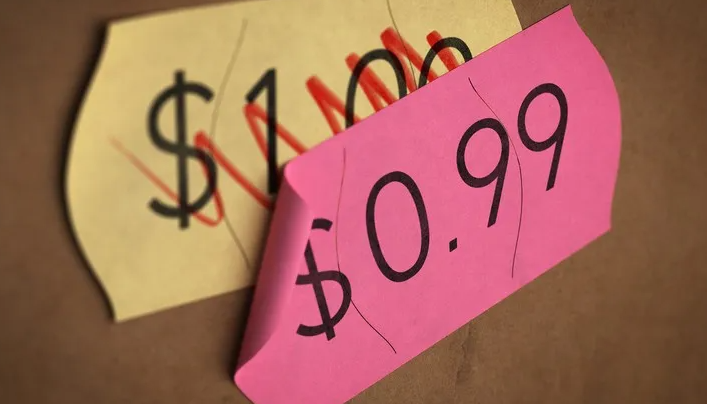
“The idea seems to be, ‘That didn’t work, so let’s try it again.’ ”
— William R. Easterly, “The Elusive Quest for Growth: Economists’ Adventures and Misadventures in the Tropics.”
RECENTLY in the U.S., a politician who promised to cut prices and raise wages won an election, and some people believe it’s the onset of a new epoch.
How old it all is — an overpromising politician and his math-defying pledges.
“The notion that there is a ‘just’ or ‘fair’ price for a certain commodity, a price which can and ought to be enforced by government, is apparently coterminous with civilization. For the past forty-six centuries (at least) governments all over the world have tried to fix wages and prices from time to time. When their efforts failed, as they usually did, governments then put the blame on the wickedness and dishonesty of their subjects, rather than upon the ineffectiveness of the official policy. The same tendencies remain today.”
That was from a book published in 1979: “Forty Centuries of Wage and Price Controls: How Not to Fight Inflation,” written by economists Robert Lindsay Schuettinger and Eamonn Butler.
As for government interventions to manage the economy and address social issues, the journalist H.J. Haskell authored a book published in 1939 about “The New Deal in Old Rome.” He noted how Rome’s efforts to control markets, manage inflation, provide public relief, and regulate prices and wages led to unintended consequences, including increased dependency and economic instability.
For over 4,000 years, leaders and governments have relentlessly tinkered with prices, wages, taxes, and social policies — never achieving their lofty goals, and often creating worse problems instead.
But they’re still at it, encouraged by voters, of course. As the economist Bryan Caplan would put it, governments “fall short because voters get the foolish policies they ask for.”
Today in the U.K. — the land of brilliant economists and other great thinkers — the government is facing significant fiscal and economic challenges. To “solve” them, it has dusted off one of the oldest plays in the political playbook: imposing higher taxes on wealthy individuals, on top of the many taxes they already pay.
According to the Wall Street Journal, Henley & Partners, a consultant company, “has projected that some 16,500 millionaires will flee the U.K. in 2025 alone. That ‘staggering’ exodus amounts to ‘the largest net outflow’ from any country since Henley and the global wealth intelligence firm New World Wealth began tracking millionaire migration a decade ago. These wealthy residents were already paying an average of more than £500,000 [$688,000] each year in British taxes — and that’s ‘without taking account of the impact of their spending and investment’ in the U.K….”
Like many of its counterparts all over the world, the U.K. government “forgot the affluent have options about where to live. The U.K.’s loss is a gain for Switzerland, Italy, Portugal and Greece, which Henley says have all seen inflows of millionaires ‘driven by favorable tax regimes, lifestyle appeal and active investment migration programs.’ ”
Aside from our stubborn refusal to admit that raising tax rates doesn’t guarantee more revenue, no policy is more enduring — or more popular — than price control.
For many of us, most prices — especially for the commodities and services we rely on — feel high, or even too high. Conversely, we’re also quite sure that the wages or fees we earn for the services we provide are low, if not too low. Hence, the enduring appeal of a demagogue (i.e., politician) who promises to lower prices and raise wages.
As with most well-intentioned government policies, the results are more often than not dreadful — scarcities/shortages in the case of mandated lower prices, and wage/benefit cuts or job losses in the case of mandated wage hikes.
For those who are — or who should be — interested in these subjects, I recommend a book published last year, “The War on Prices: How Popular Misconceptions about Inflation, Prices, and Value Create Bad Policy.” It consists of instructive short essays written by prominent economists, policy analysts, academics and think tank researchers.
One of the book’s highlights is Deirdre Nansen McCloskey’s lucid explanation of why prices in a market do not reflect ethical or personal or environmental worth. Justice, she says, “is a matter of individual ethical valuation. You can be blamed for injustice if you steal holy water from the font in a church. But the going price of water, or the wage of an academic, is not a decision like whether or not to steal. It’s the result of thousands and thousands of voluntary and anonymous and innocent interactions in a market. Prices and wages thus depend not on what you ‘deserve,’ but on what people are willing to pay.” In short, supply and demand.
Not surprisingly, the value of a commodity or service depends on circumstances, which include government mandates and policies. Prices (which include wages) vary depending on where we are and the overall economic conditions of that location. For someone lost in a desert, for example, a big bottle of drinking water can be more valuable than a gold ring.
A time-honored and more sensible response to high prices and low wages? Don’t pay. Don’t accept.
Send feedback to editor@mvariety.com










